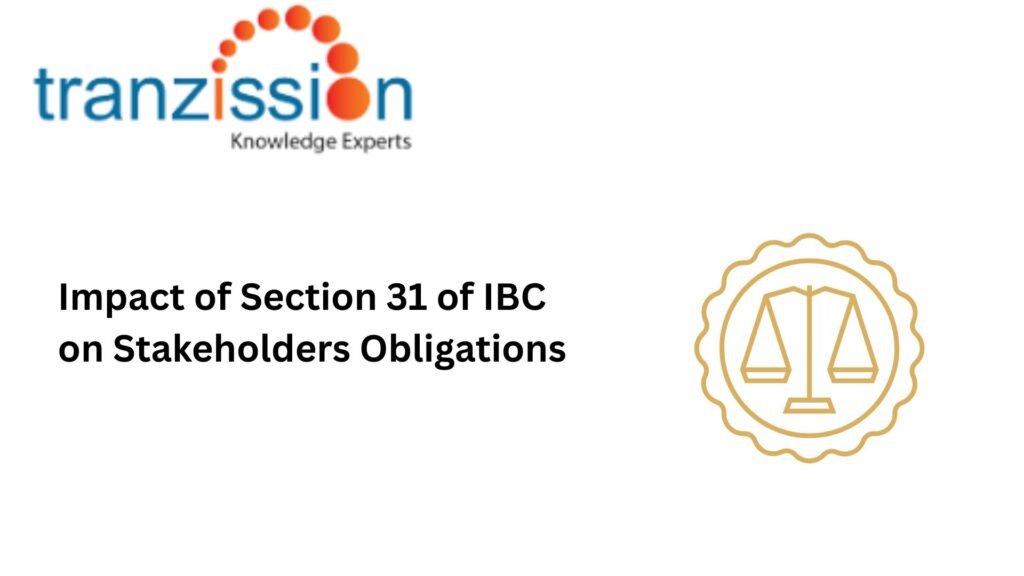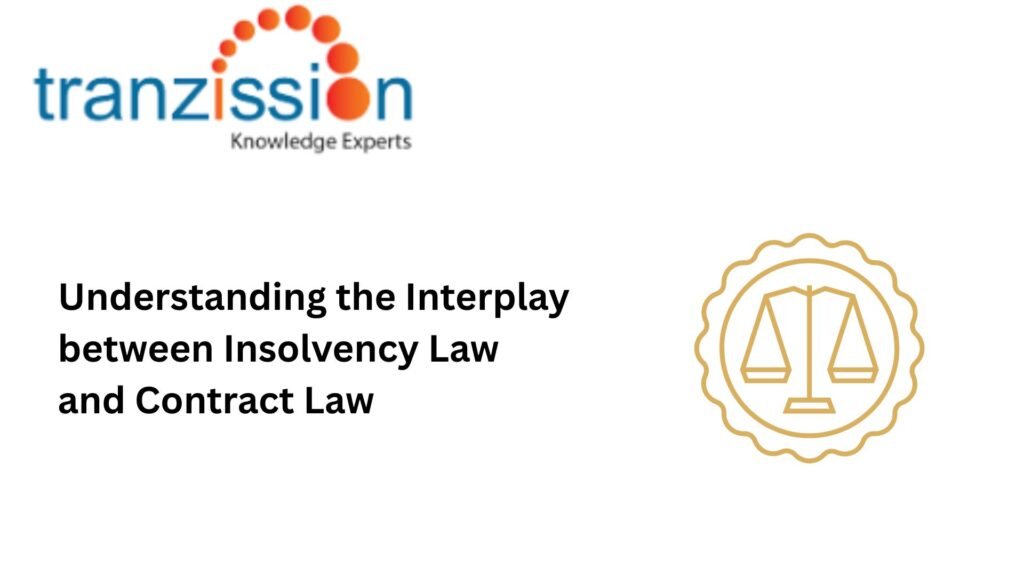Blog
When a company or individual cannot pay their debts, they may undergo proceedings under the Insolvency and Bankruptcy Code, 2016 (IBC). This Act is related to the reorganization and insolvency resolution of corporate persons, partnership firms, and individuals in a time-bound manner. The terms insolvency vs bankruptcy are often used interchangeably, but they are distinct […]
The Adjudicating Authority approves the resolution plan submitted by the Committee of Creditors, if it meets the requirements of the Insolvency and Bankruptcy Code, 2016 (IBC). Once approved, the resolution plan becomes legally binding on all parties associated with the corporate debtor. Section 31 of IBC affects not only the corporate debtor’s creditors, but also […]
All insolvency cases involve several legal issues, such as restructuring of the company, asset distribution, debt recovery, etc. The jurisdiction of the Adjudicating Authority, the National Company Law Tribunal NCLT under Section 60(5) of the Insolvency and Bankruptcy Code, 2016 (IBC). These matters may require that one case be present before different courts, leading to […]
In 2015, the primary framework for cross-border insolvency in the EU Cross-Border Insolvency Regulationswas introduced. This framework is largely based on the UNCITRAL Model Law on Cross-Border Insolvency, which provides a system for recognising and cooperating between courts in different jurisdictions when dealing with insolvent debtors with assets in multiple countries. The main aim of […]
To face the complexities of insolvency procedures and streamline the process, the development of technology such as artificial intelligence (AI), blockchain technology, and data analytics plays a crucial role. The role of technology in streamlining insolvency processes has expedited case handling, ensured transparency of legal and financial information, and improved data accuracy throughout the insolvency […]
Corporate bankruptcy is the process that companies or individuals opt for when they are unable to pay their debts to their creditors on time. It is a difficult time for companies or individuals and creditors, but for investors, it is an opportunity. Potential investors should do their due diligence and thorough research on whether the […]
The Hon’ble Supreme Court in Vishal Chelani and others v. Debashish Nanda held that Homebuyers under RERA and IBC cannot be treated differently from other financial creditors under the Insolvency and Bankruptcy Code, 2016 (IBC) merely because they have obtained orders from the authorities under the real estate laws in India. The insolvency framework under […]
Insolvency and bankruptcy laws were consolidated in 2016 through the Insolvency and Bankruptcy Code, 2016. Insolvency Professional Agencies was established under this act and plays a crucial role in regulating and overseeing the conduct of insolvency professionals. This ensures that professionals handling financially distressed companies maintain high ethical standards, possess the necessary expertise, and act […]
When a party to a contract becomes insolvent, it significantly impacts their ability to fulfill their contractual obligations potentially leading to disputes over contract performance, termination rights, and the overall legal framework of the agreement. It creates a complex situation where the solvent party may face uncertainty regarding their contractual rights and potential losses due […]
Insolvency proceedings are important to resolve the financial issues of companies and require all parties involved in such proceedings to be genuine and provide accurate information. In India, the Insolvency and Bankruptcy Code, 2016 (IBC) is the comprehensive framework to address insolvency and ensure timely resolution. Doctrine of Antecedent Debt is the primary goal to […]


